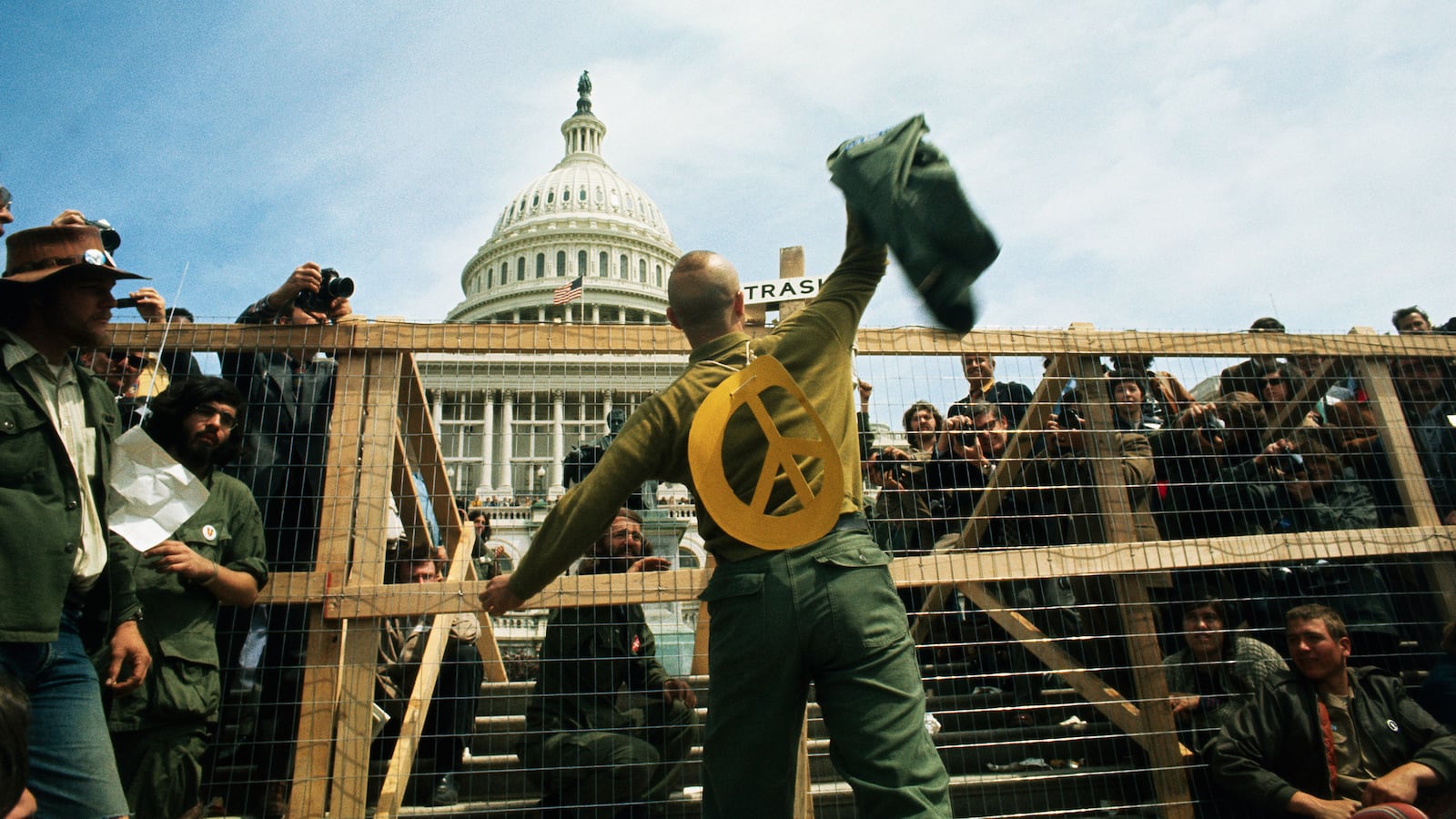Squinting at 2019’s disrupted economy and roller-coaster stock market, deep cultural divisions, and disjointed politics, I see the 1970s. That decade helps explain how we lurched from the the hopefulness of the Obama years to the petty narcissism of the Trump era.
The decade has been the subject of renewed attention from renowned historians Jefferson Cowie, Joseph McCartin, Judith Stein, Ruth Needleman, and Kim Phillips-Fein, giving us a new understanding of this era not as a simple passage from the '60s to Reagan, but as a foundational period of its own for today’s America. We can think of the 1970s the way political economists think of shifts in state capacities, as a regime changing decade— a period of radical shifts in the role, scope and expectation of the state.
This way of looking at the period comes to us from the brilliant historian Alan Brinkley, who demanded that scholars take seriously the political ideologies and movements for modern conservatism. This effort lead to scholars looking at the 1970s as a political thing, rather only through the lens of culture. Prior to the ‘70s, we had the “New Deal Order,” the rise of modern liberalism, an America that was the leader of the free world, and a set of economic policies that supported workers and built a rising middle class, and an economy based on consumer-driving manufacturing. This was a period of big government, big business and big labor. It was, as is clear, not without its limits or problems. The period from 1932 to 1980 witnessed massive social unrest around civil rights, gay rights, women’s rights, and an anti-war movement. There were limits to the politics of the era and the efforts to expand them led to a reimagining of American politics.
This reimagining came to a head in the 1970s. A decade of disillusion, economic stalls, layoffs, corruption and a splintering of movements. The 1970s witnessed the culmination of movement politics splintering into movements politics. We can see this best by looking at the place of labor in American society.
As the ‘60s turned into the ‘70s, American unions were at their strongest in our history. They played a major role in economic and political life. They had created labor relations systems through labor contracts that lifted millions of blue collar workers into the middle class and created a new America. But, they did so by ignoring vast swathes of the workforce—including African-Americans, new immigrant groups and women. As efforts to reform and enlarge labor’s vision began, the economy sputtered and declined, pitting the new vision for labor against the old realities of union membership.
This created a division in the working class, between an older white working class and a newly emerging multicultural working class. Gains for one were seen as losses for the other. This pushed groups into a fragmented identity politics, as the sense of class unity wasn’t strong enough to hold. As class lost its unifying hold on workers, the members of the new working class had to choose between between multiple identities as many if not most white workers became hostile to the other members of the new multicultural working class. The fact that we don’t have a clear and common term for this new class speaks volumes to the issue.
The effects of this dissolving of a potentially unifying class identity were remarkable. First, it lead to a decline in organized labor as the new working class didn’t see unions as effective fighters for them. Second, this decline led to a diminishing of union power and stature in society and also politics. Third, this decline lead to unions becoming much more conservative and risk-averse, more interested in protecting the past than preparing for the future. Fourth, this decline, splintering, and new conservatism meant that cultural appeals to workers often replaced economic ones. This lead to the culture wars as culture replaced economics and became the sine qua non of our politics—a shift that, as theorist Antonio Gramsci reminds us, plays well on the right.
Fast forward to today and politics again seem more about cultural affinities than economic realities. Trump’s base is aligned with him not from economic principles or policies, but from cultural attraction. What is lost is also clear: a voice representing the common person’s economic needs. The New Deal order had its problems, but economic development and policy were at its core, not a sideshow. And this was how the American middle class grew.
I’m no fan of Bill Clinton, but his 1992 presidential slogan, crafted by James Carvell, it’s “the economy stupid,” applies more now than it did then. Politics is supposed to be a means to an end; somehow it has become an end in itself. We are mesmerized by the game, the sport, of politics, and have abdicated our civic responsibility.
Thomas Jefferson said, "Cherish, therefore, the spirit of our people, and keep alive their attention. If once they become inattentive to the public affairs, you and I, and Congress and Assemblies, judges and governors, shall all become wolves. It seems to be the law of our general nature."
The question as 2020 approaches is if Democrats can find and hold focus on working people’s economic needs—or if the wolves’ howls will drown out everything else.






